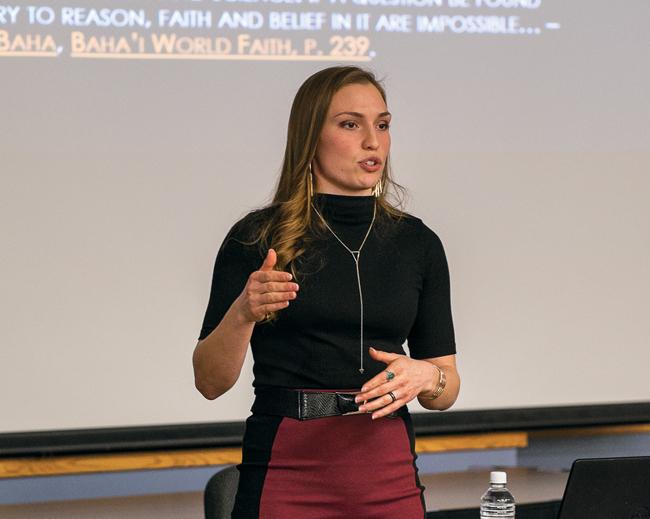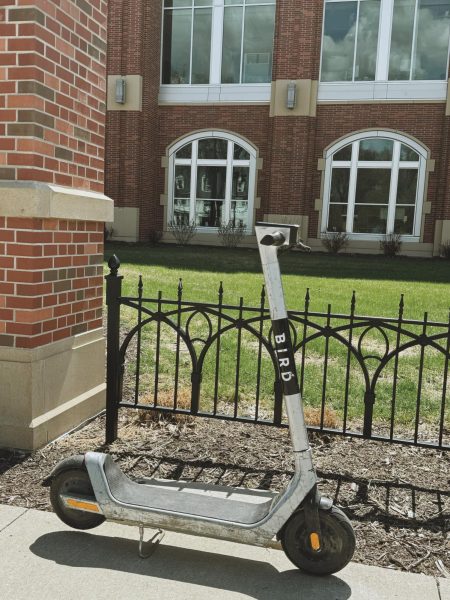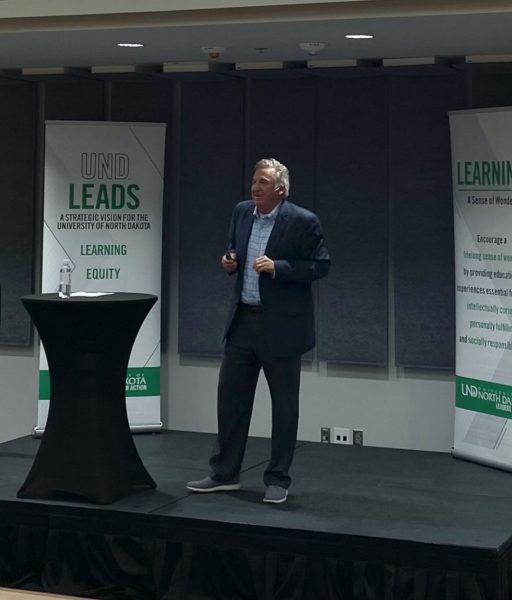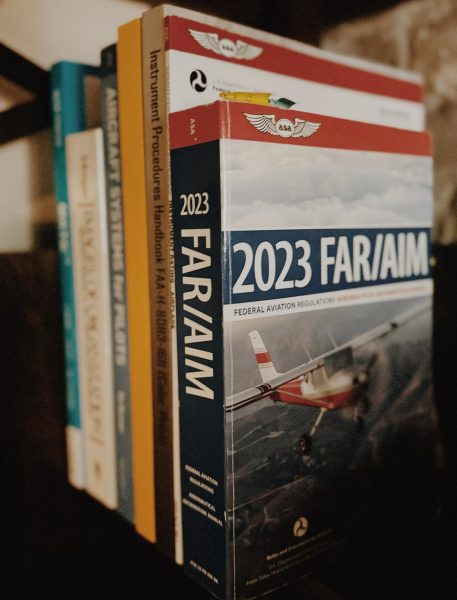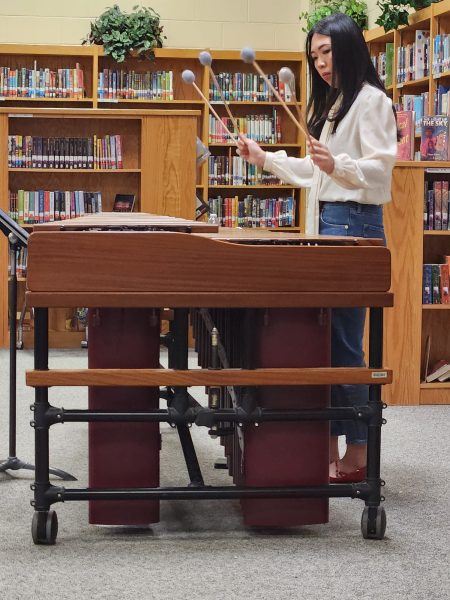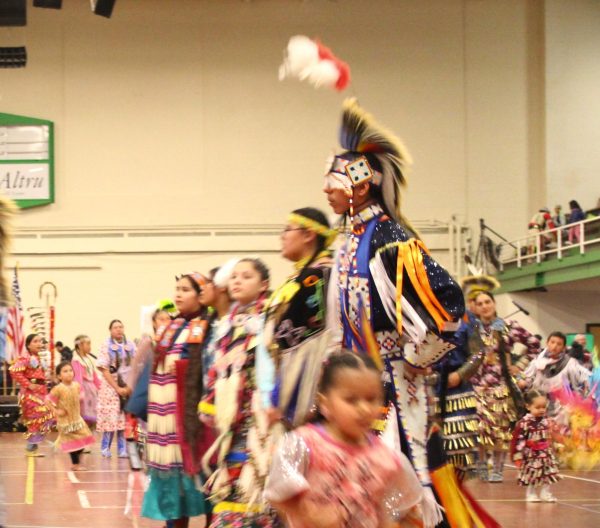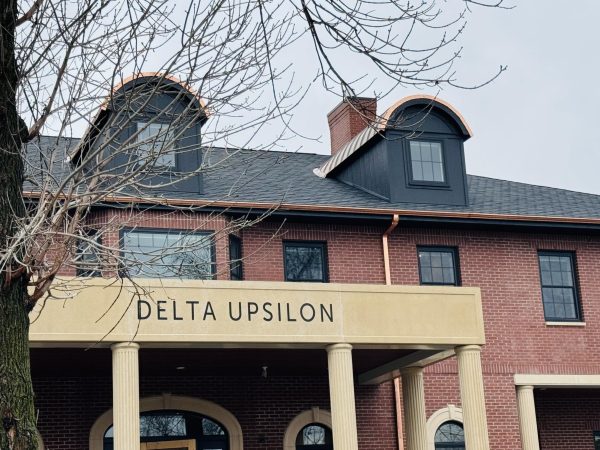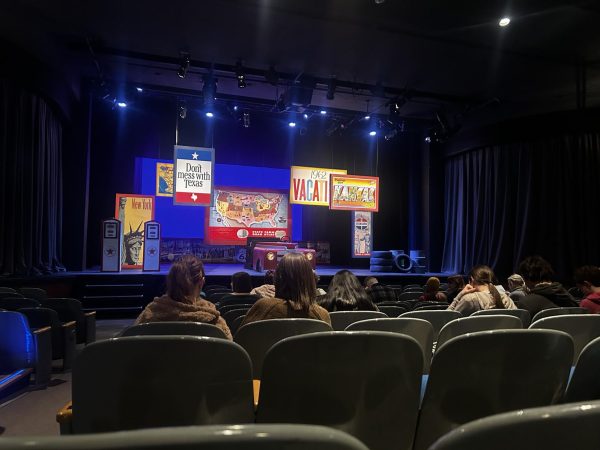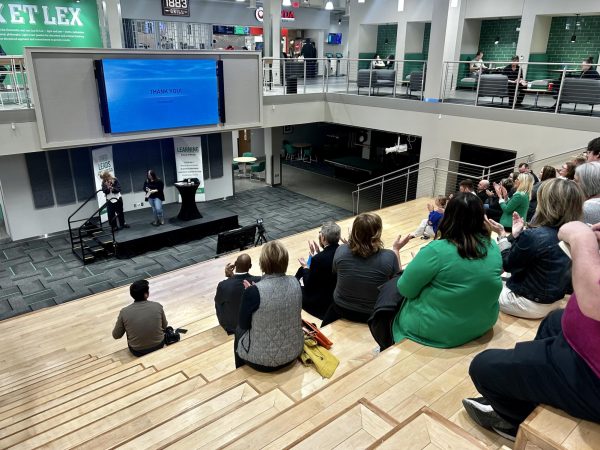Interfaith Week, Bahá’í Conversation
Dakota Student / Nicholas Nelson
Cheyenne Defender presents a talk on the Baha’i faith during Interfaith week at the River Valley room in the Memorial Union.
February 3, 2017
On Jan. 31, a group of diverse members of the Grand Forks community arrived at the Red River Room in the Memorial Union for Bahá’í Conversation: Learning About the Bahá’í Faith. Some were Bahá’í, who had come to engage with those interested in learning about their monotheistic religion.
Most were a few students and faculty members who had come out of curiosity. There was even one woman who admitted that she had a Bahá’í friend and wanted to better understand the teachings and practices.
Despite their reason for attending, all members of the audience were engaging, respectful of one another and open to the ideas of a faith that they may have never even heard of prior to hearing about this event.
The presentation is part of UND’s annual Interfaith Week, during which various organizations produce a series of interactive events and presentations, encouraging others to learn more about worldviews and different cultures. Cheyenne Defender, the presenter of the evening, continually mentioned the Bahá’í Faith’s emphasis on the unity of all humanity.
Though a PowerPoint and chairs were set up like it was another informational presentation, Defender created an open-dialogue atmosphere for the audience.
Before the presentation began, she passed around Oreo’s and Kool-Aid. Defender casually introduced herself to some and encouraged conversation between audience members.
“To me, being a Bahá’í is not so much a label as it is a way of life,” Defender said. “If you’re striving to be a Bahá’í, you’re looking at yourself all the time so that you can reflect your good qualities onto others.”
Questions were asked about the monotheistic religion before Defender started her presentation, titled “11 Basic Principles of the Bahá’í Faith.”
According to Defender, the principles of the faith are centered in their belief in the spiritual unity of all humankind, and that we discover more about spirituality through the Independent Investigation of Truth. The latter is the belief all humankind is born with the power and responsibility to constantly seek and recognize truth, rather than follow others blindly.
A central tenet of Bahá’í belief that differs from other religions is the harmony between science and religion. Described by Defender as a “research-based faith,” Bahá’ís believes faith and reason should align, rather than conflict. One without the other would be harmful to humanity, and cause either materialism or superstition.
Defender also spoke about Bahá’í practices that make it similar to other beliefs; like how Catholics have Sunday school, the Bahá’í have a principle of “Universal Education.” This compulsory education is different because in addition to promoting students’ spiritual and moral side, a good foundation of academic knowledge is emphasized as well.
However, the spiritual aspect of Bahá’í education is not taught around the rules of the religion as it is on the importance of reexamining their spirituality. Defender was once a “Junior Youth Animator” for a youth group, and said that instead of requiring students to memorize dates and authors of texts, their job was to guide the students to build spiritual connections with one another and ask questions about how they see themselves.
“The purpose [of Universal Education] isn’t to promote Bahá’í faith,” Defender said. “It doesn’t matter what form, or whichever one it is. It is to promote spirituality.”
Though she got many questions during and after her presentation, Defender remained patient and answered every one of them with the clarity and sincerity that the Bahá’í belief promotes. The event certainly did what all of UND’s Interfaith week events strive to do: educate others about different cultures and religions, while also promoting an acceptance and understanding of our community’s differences.
Stephanie Hollman is a staff writer for The Dakota Student. She can be reached at [email protected]


